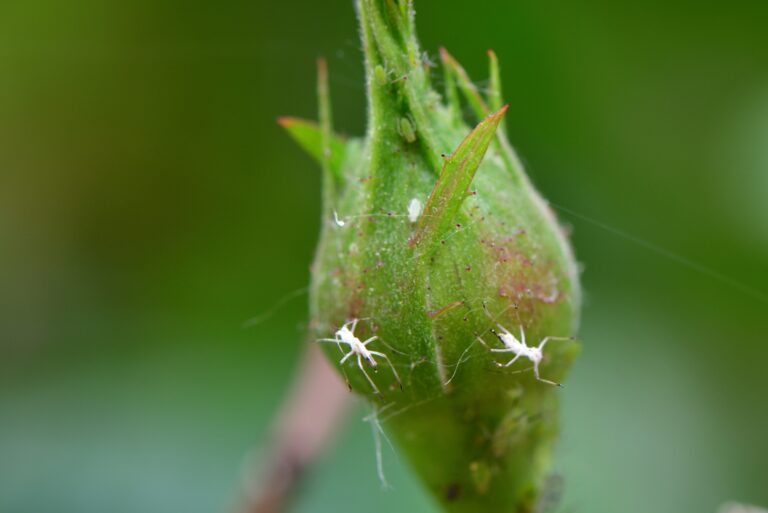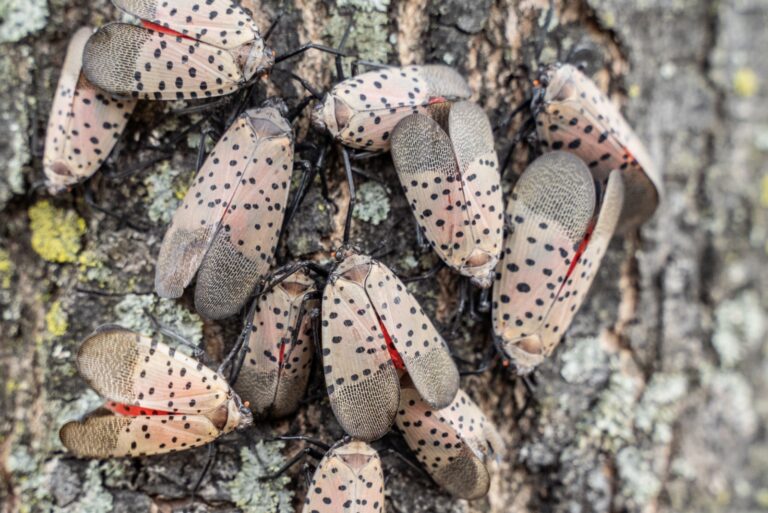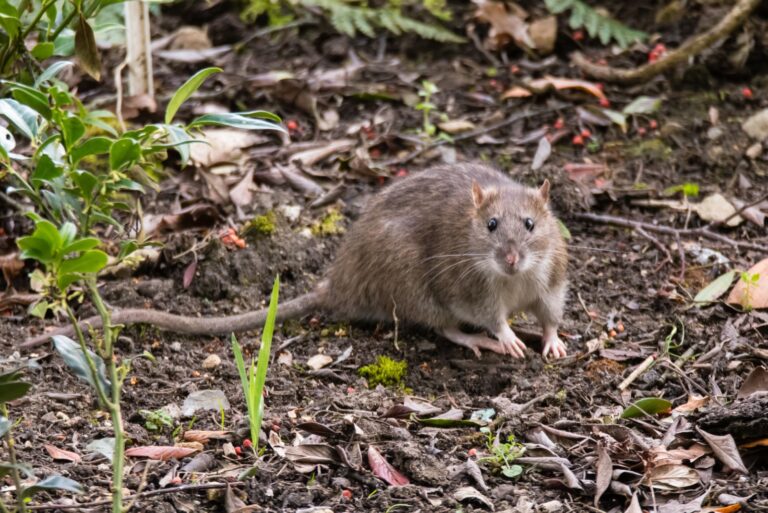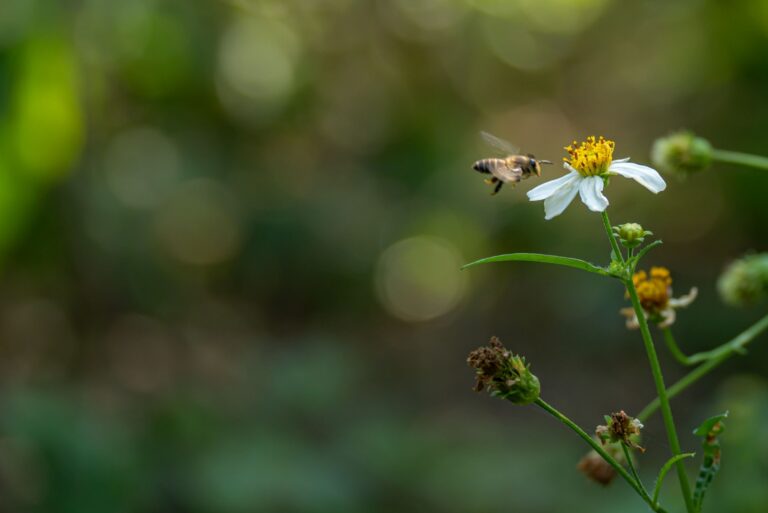The Best Organic Pest Control Methods – 25 Brilliant Solutions That Actually Work
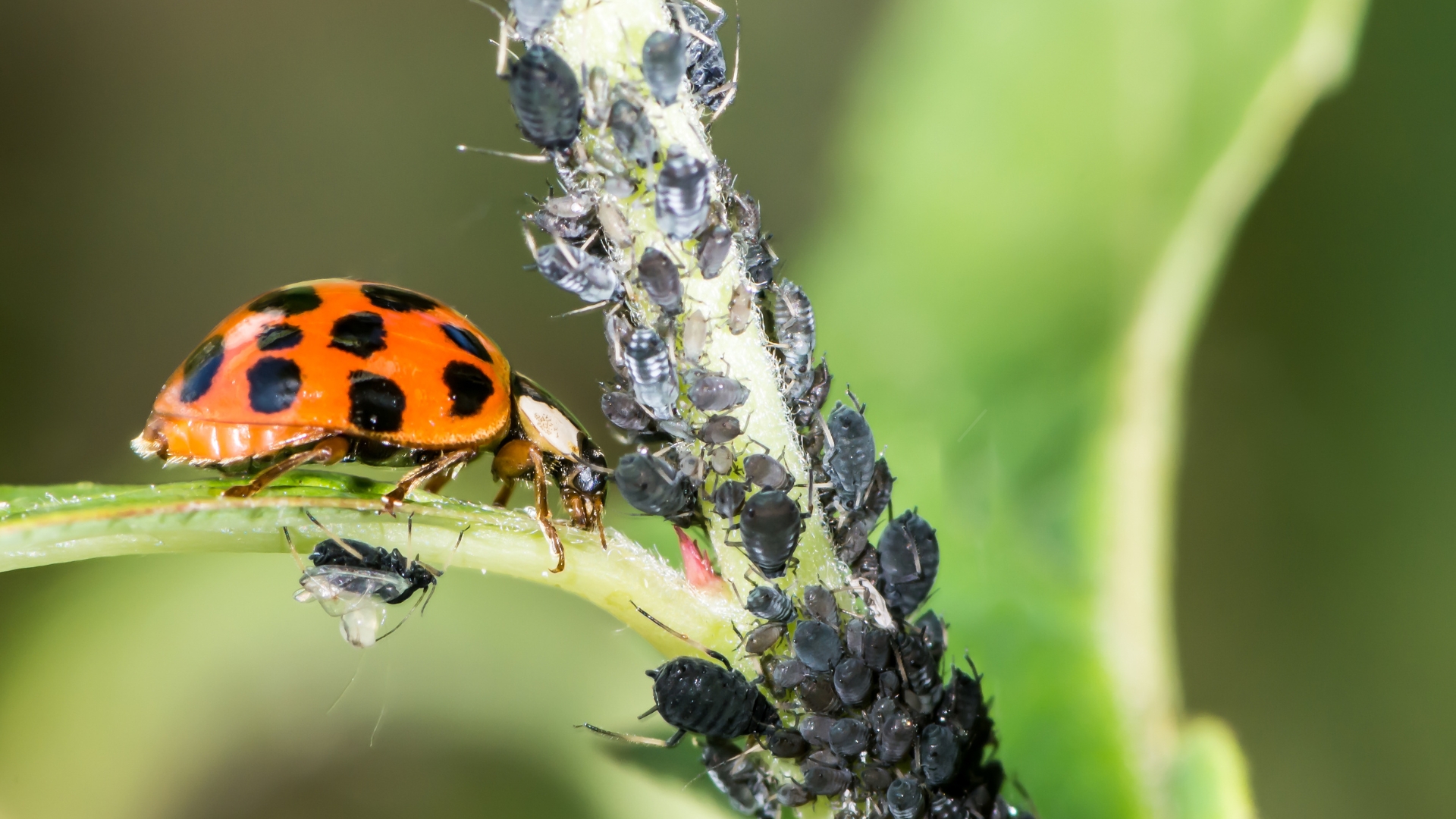
Gardening can be a peaceful escape, but pests often threaten to turn it into a battlefield. Instead of reaching for harsh chemicals, I’ve found organic methods to be not only effective but also gentler on our environment. Let’s explore the top 25 organic pest control strategies to keep our gardens thriving healthily.
1. Neem Oil Spray

Imagine a pest control solution that doesn’t harm the environment. Neem oil fits this role perfectly by disrupting insect hormones, halting their growth. When applied to plants, it creates a protective barrier against unwanted guests.
To ensure effectiveness, mix neem oil with water and a few drops of dish soap. This mixture should be applied during the cooler parts of the day to avoid leaf burn.
Consistent application every few weeks keeps pests at bay, while ensuring your plants are safe from harmful chemicals.
2. Insecticidal Soap
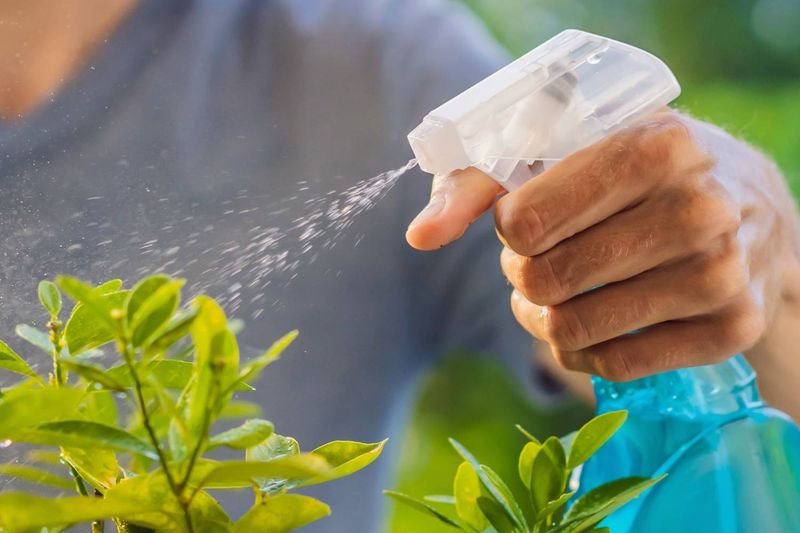
Ever wished for a gentle pest solution that targets only the invaders? Insecticidal soap is crafted to break down the cell membranes of soft-bodied pests like aphids.
This means aphids are left defenseless, while your plants remain unharmed. Apply directly to the infested areas, ensuring you cover both sides of the leaves.
Regular use not only manages current infestations but also deters future ones. Always rinse the soap off after a few hours to protect the plants from prolonged exposure.
3. Companion Planting
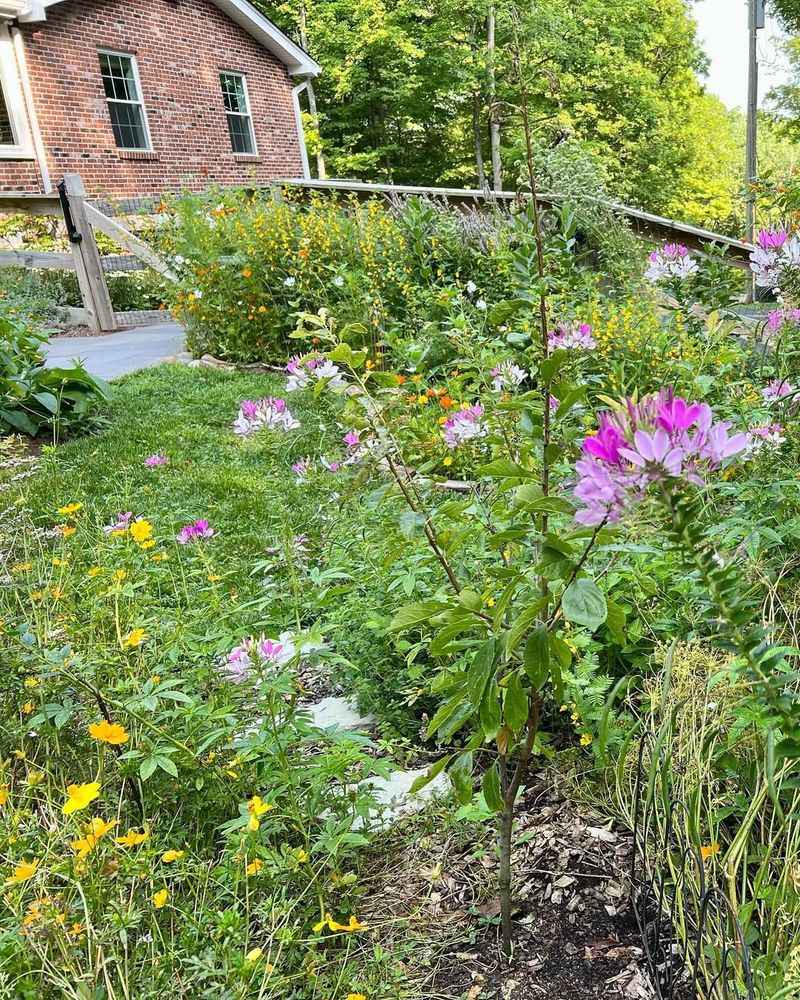
Nature has its own way of keeping balance, and companion planting is a testament to this harmony. You can deter pests naturally by pairing certain plants together.
For example, marigolds are known to repel insects when planted alongside tomatoes. This method doesn’t just protect but enhances biodiversity, promoting a healthier ecosystem.
Experiment with different pairs to see what works best in your garden. As you discover these beneficial combinations, your garden will not only flourish but also stay naturally protected.
4. Floating Row Covers
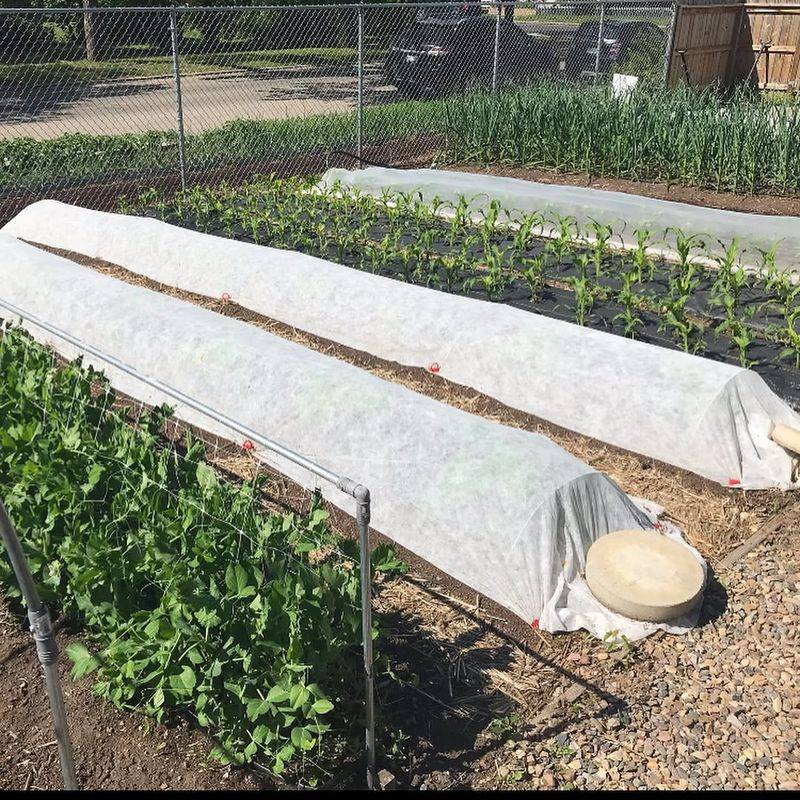
If pests flying in are your main concern, floating row covers might be your best ally. These lightweight barriers safeguard plants from unwanted intruders while letting sunlight, water, and air through.
They act as a physical shield, keeping the plants underneath protected from flying insects. Use them during vulnerable growth stages for optimal protection.
These covers can be easily adjusted or removed as needed, ensuring that your plants receive all the natural elements they require for healthy growth.
5. Beneficial Insects (Ladybugs, Lacewings)
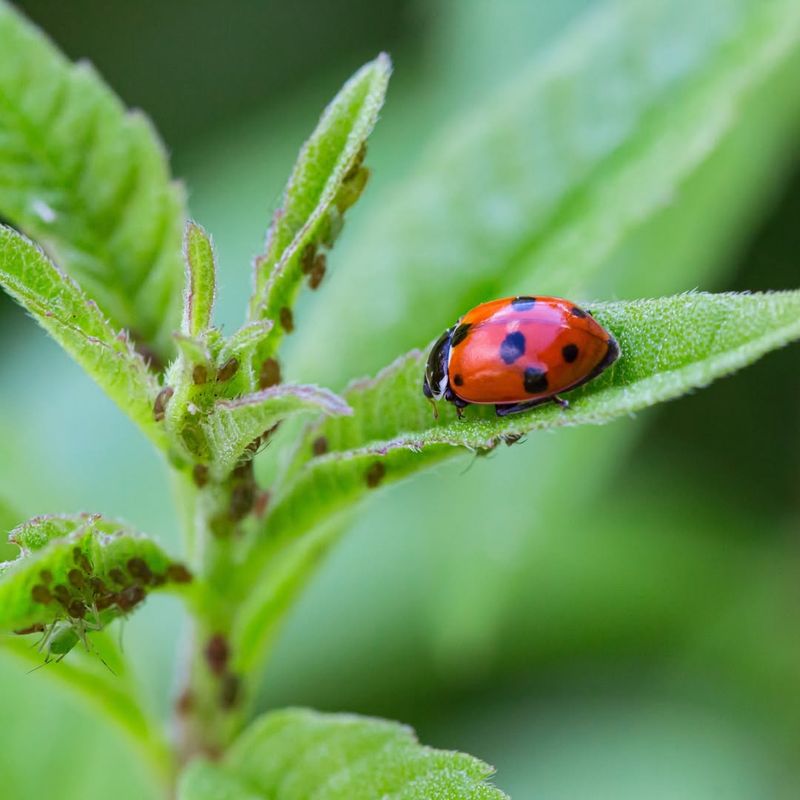
Harness the power of nature by inviting beneficial insects like ladybugs into your garden. These natural predators feast on pests such as aphids, keeping their populations in check.
Attract them by planting pollen-rich flowers or introducing them directly into your garden. As these insects thrive, expect a natural pest balance to emerge.
Not only will your plants thank you, but your garden will also become a lively haven of biodiversity, showcasing nature’s brilliance in pest management.
6. Diatomaceous Earth
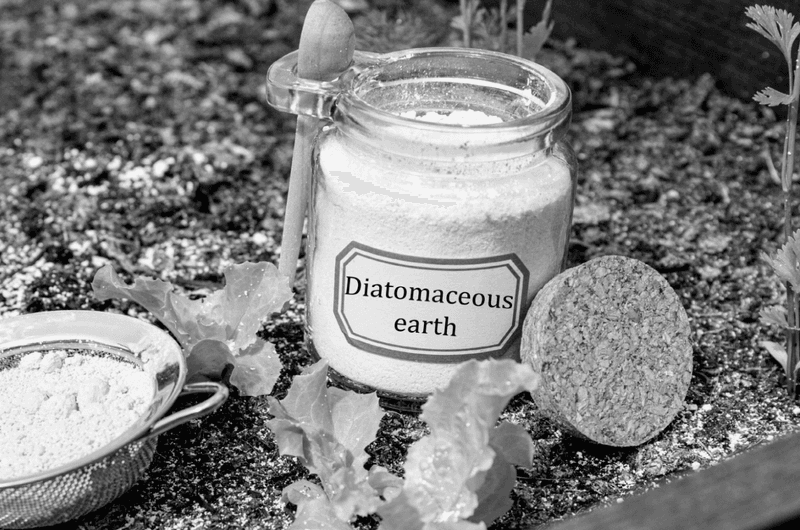
For a safe yet effective solution, turn to diatomaceous earth. This fine powder works wonders by scratching and dehydrating pests like slugs and beetles upon contact.
It’s crucial to apply it around the base of plants, especially after rain or watering, to maintain its effectiveness. The powder poses no threat to humans or pets, making it ideal for organic gardening.
Regular application ensures a persistent defense, safeguarding your plants from invasive pests, while maintaining a garden that’s both healthy and chemical-free.
7. BT (Bacillus thuringiensis)
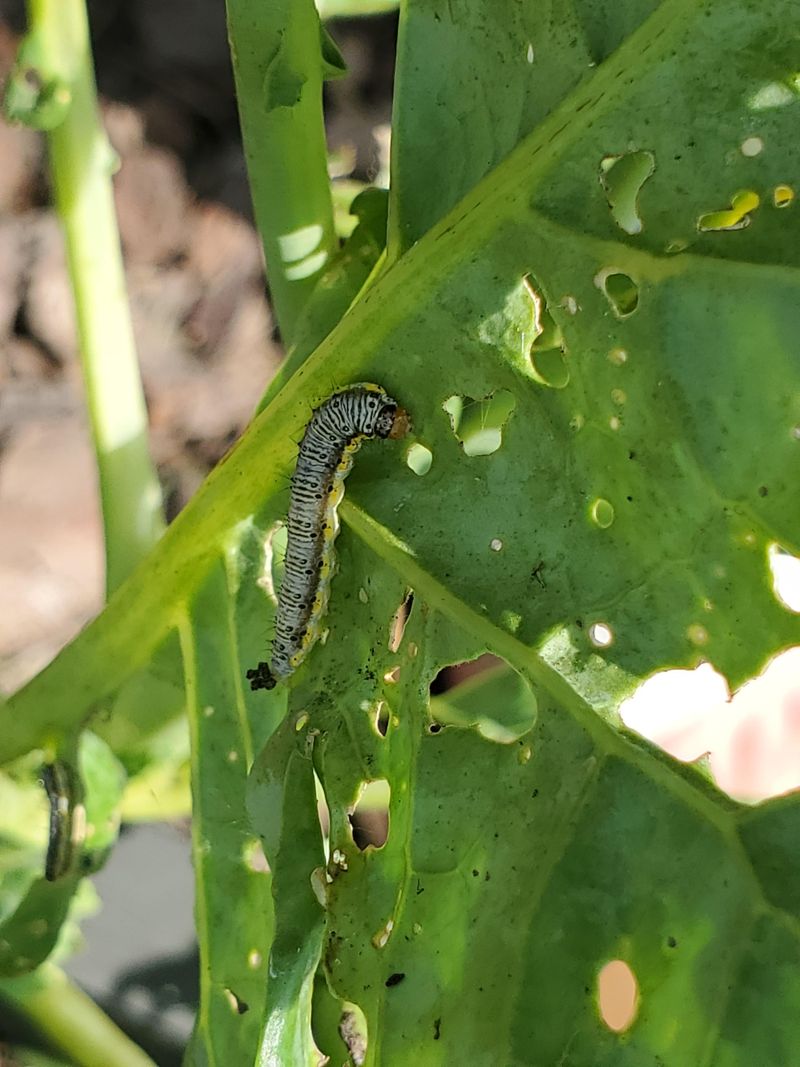
Looking for a solution that targets pests without collateral damage? BT is a naturally occurring bacteria that specifically attacks caterpillars and worms.
Once ingested, it disrupts their digestive system, effectively controlling their populations. The beauty of BT lies in its selectivity; it doesn’t harm beneficial insects, wildlife, or humans.
Spray it on affected plants during early morning or late afternoon. This ensures maximum absorption while reducing the risk of BT breakdown in sunlight.
8. Garlic Spray
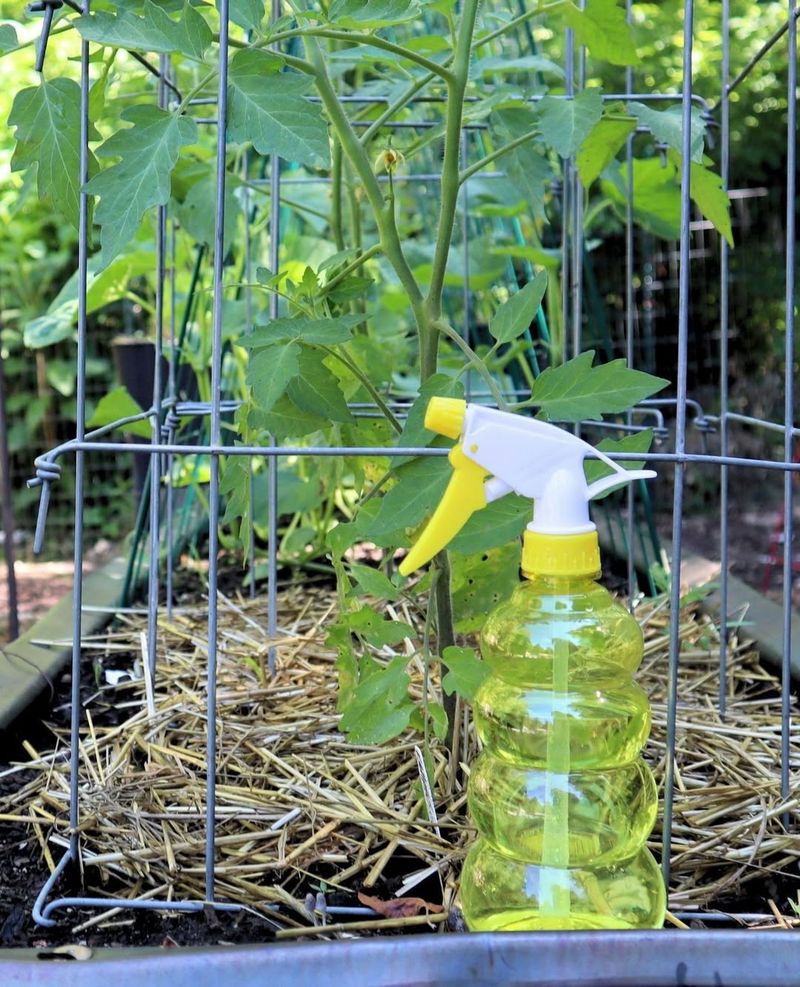
It’s amazing what a pungent aroma can do! Garlic spray repels pests through its strong scent, creating an inhospitable environment for them.
To make your own, blend garlic cloves with water and a touch of soap. This mixture, when applied to plants, deters pests from settling in.
Reapply every week or after rain to maintain its potency. You’ll find your plants thriving, free from pest interference, all thanks to this simple, natural remedy.
9. Hot Pepper Spray
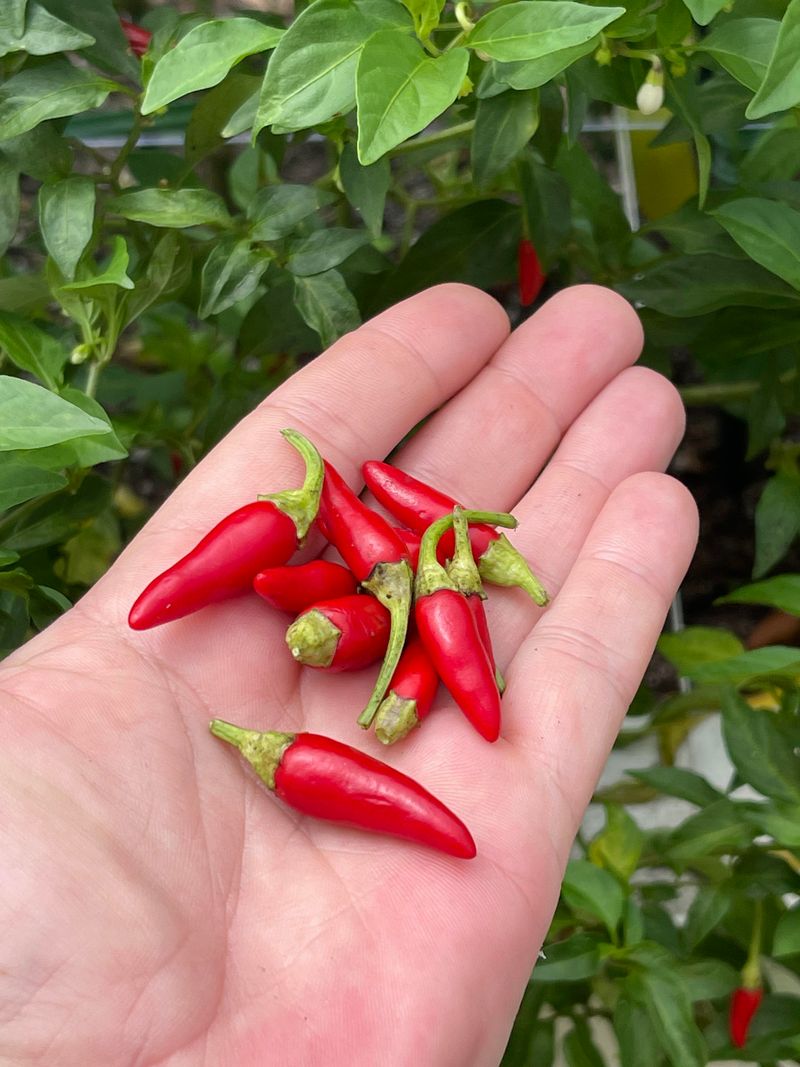
For those who relish a spicy solution, hot pepper spray is your answer. Capsaicin, the component that gives peppers their heat, deters chewing insects and mammals.
To create this fiery barrier, mix hot pepper with water and a bit of dish soap. Apply it to plants, focusing on areas most affected by pests.
This natural deterrent ensures pests think twice before munching on your greens, keeping your garden healthy and vibrant.
10. Sticky Traps
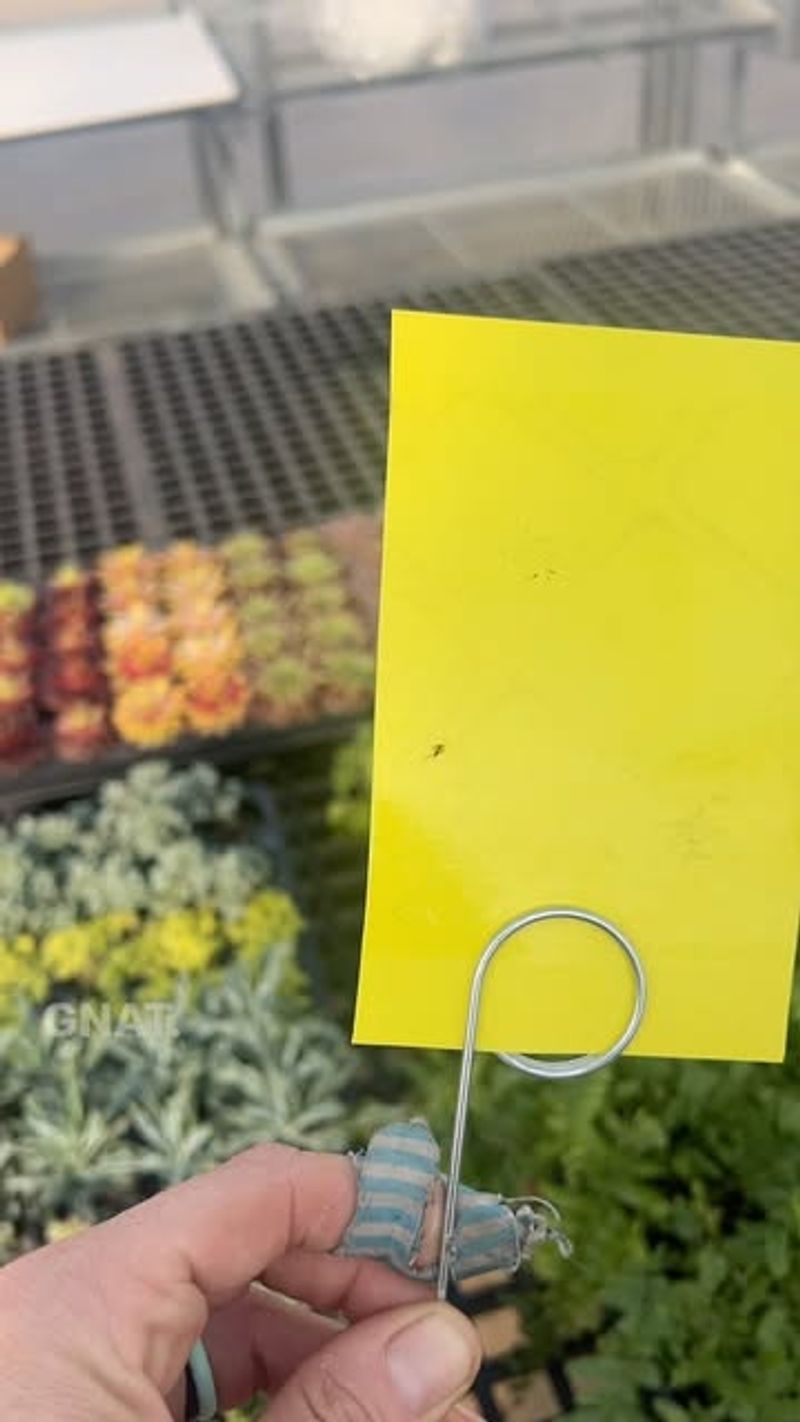
Why not let the pests come to you? Sticky traps lure flying pests like whiteflies, trapping them on their adhesive surface.
These traps can be strategically placed near infested plants or throughout your garden to monitor pest levels. As a non-toxic solution, they’re ideal for organic gardens.
Regularly check and replace the traps to ensure continuous protection. This simple yet effective method keeps flying pests at bay, allowing your plants to flourish undisturbed.
11. Trap Cropping
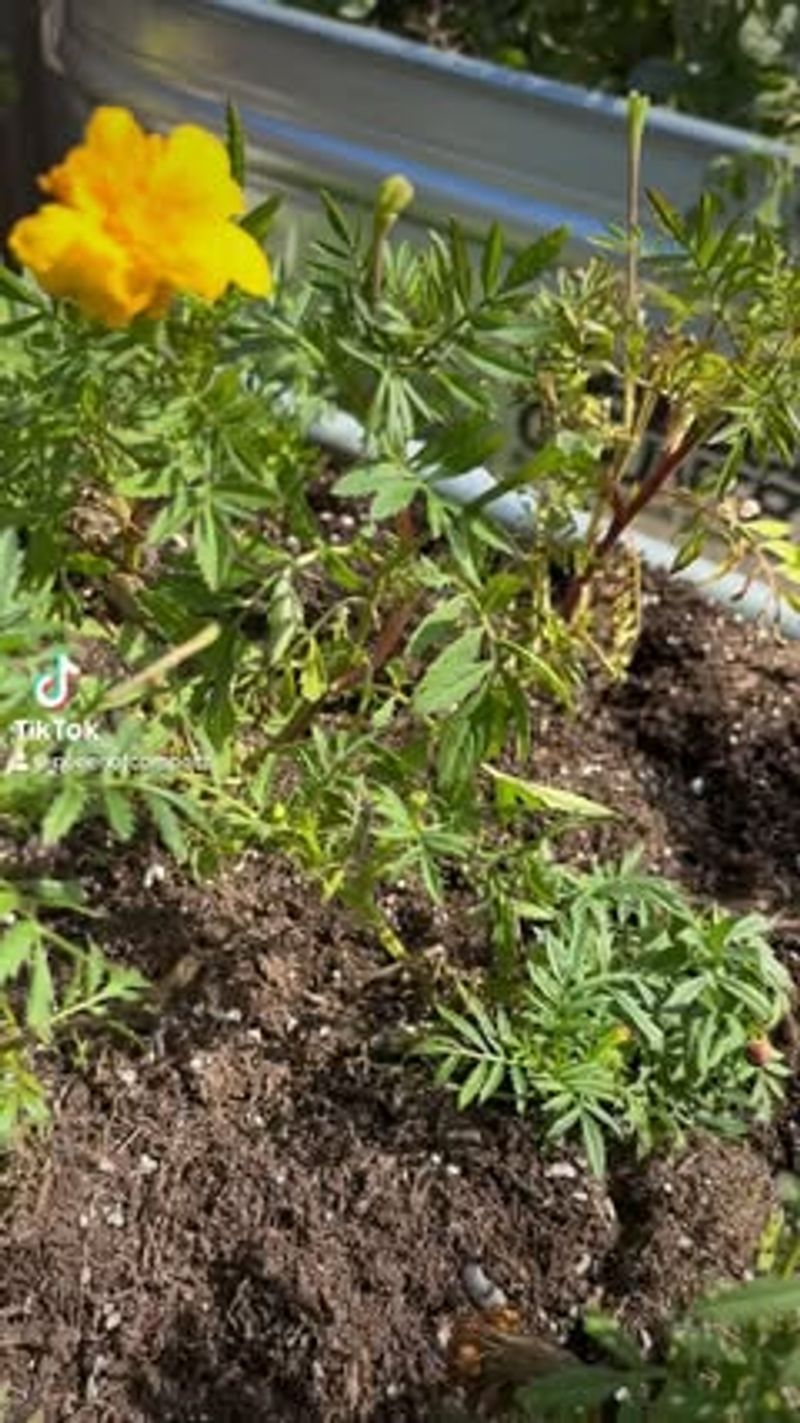
The strategy of trap cropping involves sacrificing a plant to save others. By planting a more appealing crop, pests are lured away from your main plants.
Nasturtiums, for instance, attract aphids, sparing your vegetables from their damage. Careful planning and placement are key to this method’s success.
Monitor the trap crops closely, and be prepared to remove infested plants if necessary. This sacrificial tactic ensures your main crops remain largely unaffected by pests.
12. Attracting Birds to the Garden
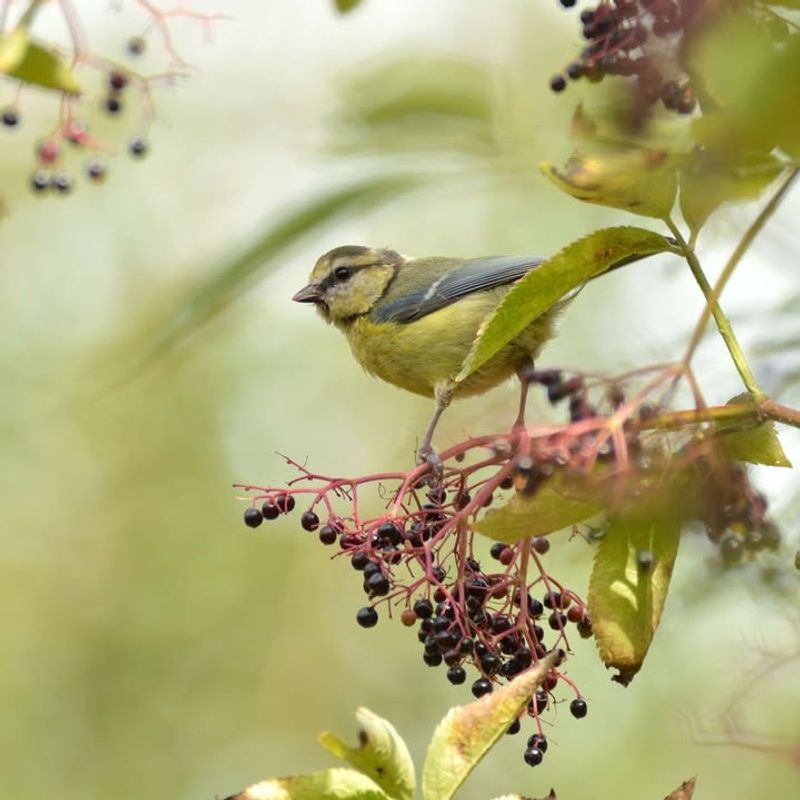
Birds can become your garden’s best friends. By attracting them with feeders, birdbaths, and native plants, they naturally control insect populations.
Birds like sparrows and robins feast on pests, reducing the need for chemical interventions. Maintain a bird-friendly environment, and their presence will keep your garden lively and bug-free.
Encouraging these feathered allies not only enhances garden aesthetics but also promotes a balanced ecosystem, making pest management a delightful experience.
13. Crop Rotation
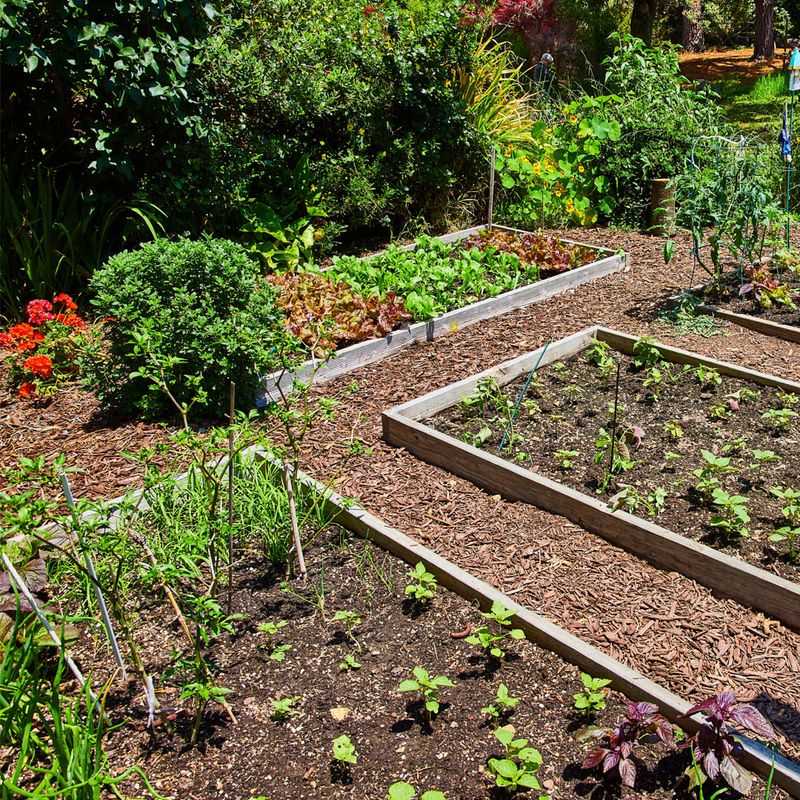
The age-old practice of crop rotation is a farmer’s secret weapon. By changing the location of crops each season, you prevent pest populations from establishing a foothold.
This method disrupts the life cycle of pests, reducing infestations significantly. Moreover, it improves soil health by balancing nutrient needs across different plant types.
Plan your garden layout with rotation in mind, and enjoy not only healthier plants but also reduced pest-related issues, contributing to a more sustainable gardening approach.
14. Mulching with Organic Materials
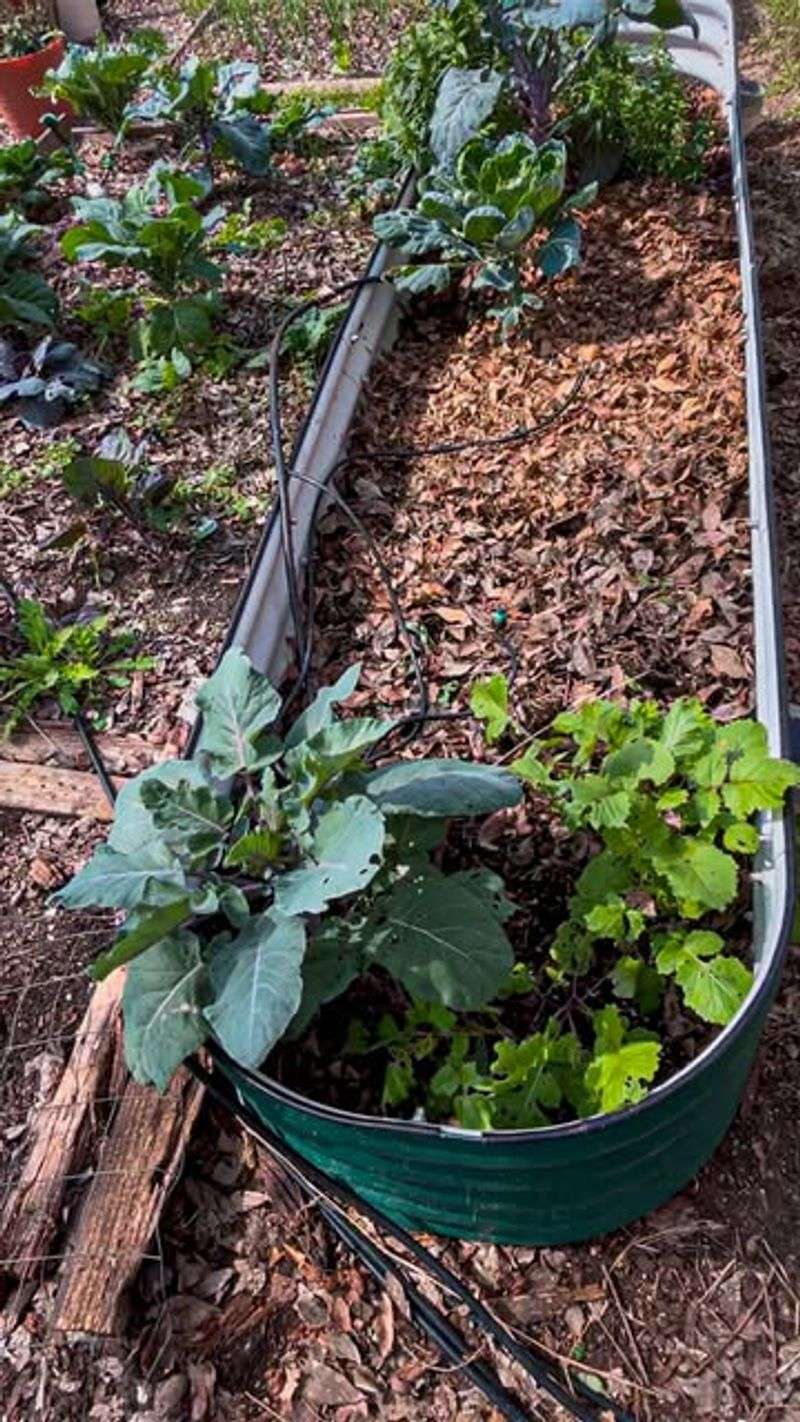
Mulching serves multiple purposes in a garden, including pest deterrence. Organic materials like straw or wood chips suppress pest habitats by covering the soil.
This layer retains soil moisture and provides a less inviting environment for pests. It also adds nutrients back into the soil as it decomposes.
Apply mulch generously around the base of plants, ensuring a consistent layer. This simple addition enhances plant growth while keeping pests at bay.
15. Manual Removal
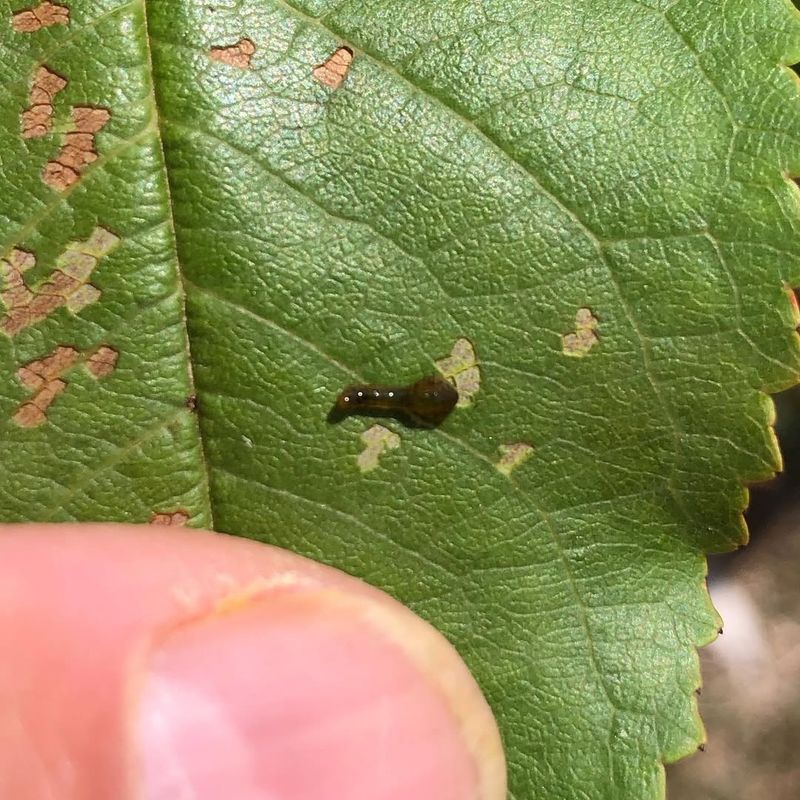
Sometimes, the simplest methods are the most effective. Manually removing pests like hornworms or beetles ensures immediate results.
By inspecting your plants regularly, you can catch infestations early and address them promptly. This hands-on approach allows you to connect with your plants, understanding their needs better.
While labor-intensive, the effectiveness of this method in small gardens makes it worthwhile, ensuring your plants stay healthy without chemical interventions.
16. Essential Oils (Peppermint, Rosemary)
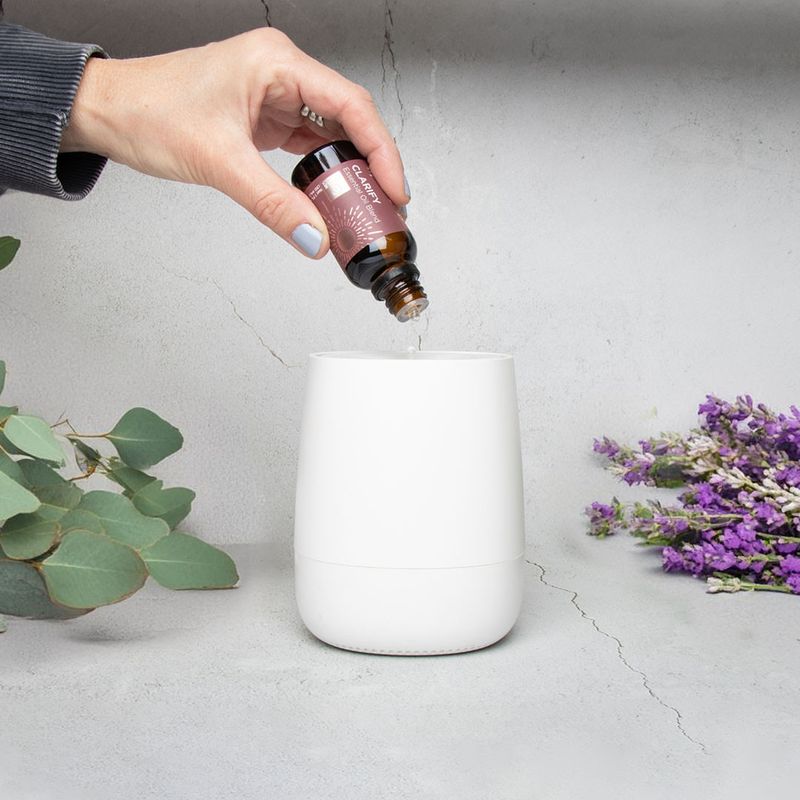
Harness the power of scent with essential oils like peppermint and rosemary. These oils act as natural repellents for many garden pests, such as ants and mosquitoes.
By mixing a few drops in a spray bottle with water, you can create a potent solution to apply around your garden. Alternatively, use a diffuser for continuous protection.
This aromatic method not only deters pests but also leaves your garden smelling delightful, making gardening a more pleasant experience.
17. Compost Tea Spray
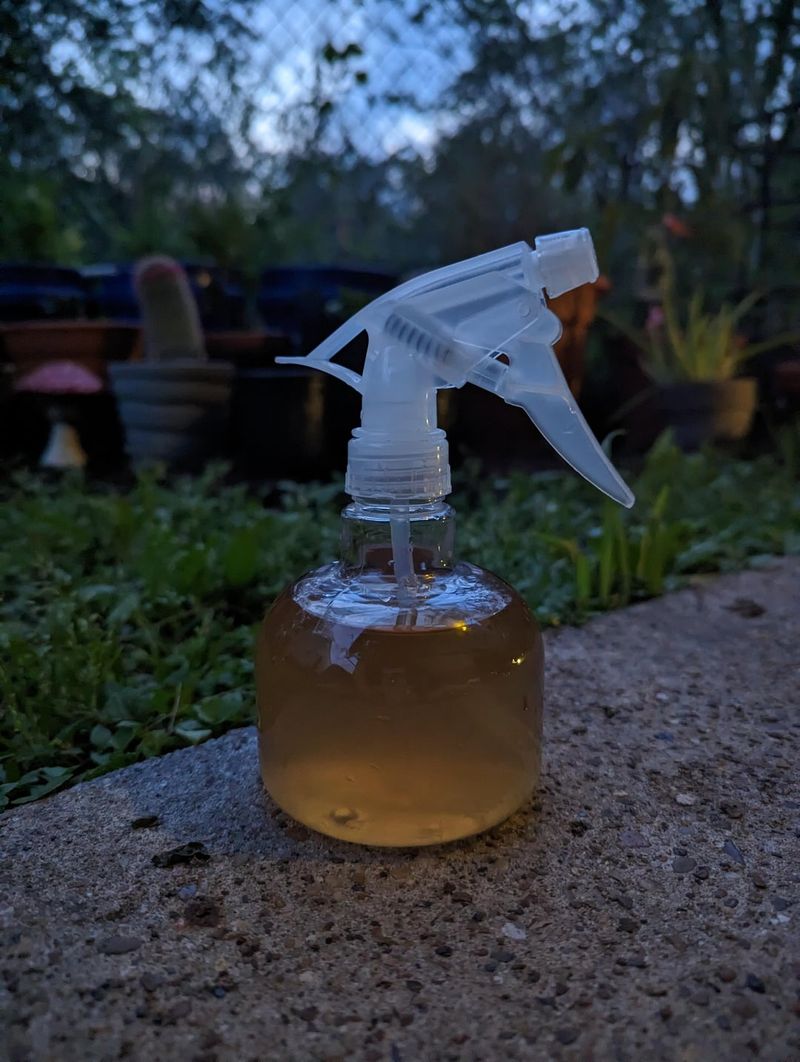
Compost tea is a gardener’s elixir, boosting plant immunity with beneficial microbes. When sprayed on plants, it deters pests by strengthening plant defenses.
To make compost tea, steep compost in water for a few days, then strain and use the liquid. This nutrient-rich solution nourishes plants while keeping pests at bay.
Regular application ensures your garden remains robust and resilient, with a natural defense system that minimizes pest invasions.
18. Beer Traps for Slugs
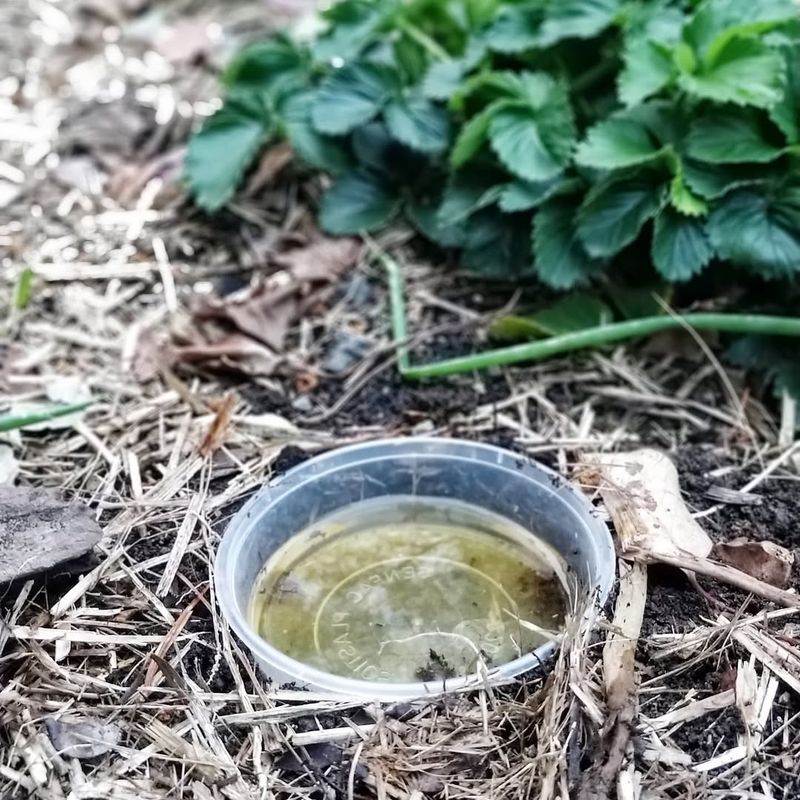
A surprising ally in the garden is beer. Slugs are drawn to its yeast and sugar, making beer traps an effective solution.
Simply bury a shallow container filled with beer at soil level, and watch as slugs are lured in and trapped.
Position traps where slug activity is high, and check them regularly. This simple, eco-friendly method reduces slug populations without harming your plants, keeping the garden lively and healthy.
19. Copper Tape for Slugs and Snails
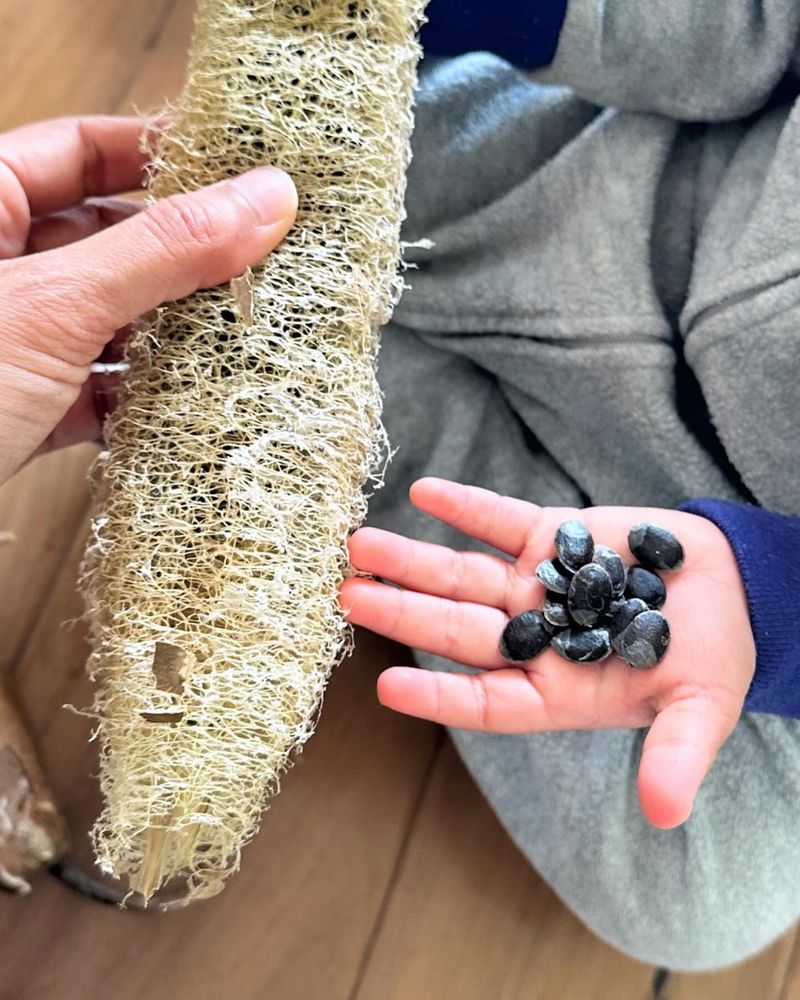
Copper tape serves as a formidable barrier against slugs and snails. When they attempt to cross, the copper reacts with their slime, deterring them.
Apply the tape to the edges of pots and raised beds for effective protection. This method doesn’t harm other wildlife, making it ideal for conscientious gardeners.
Regularly check the tape’s condition to ensure its effectiveness, and enjoy a garden free from these persistent pests.
20. Nematodes (Beneficial Microbes)
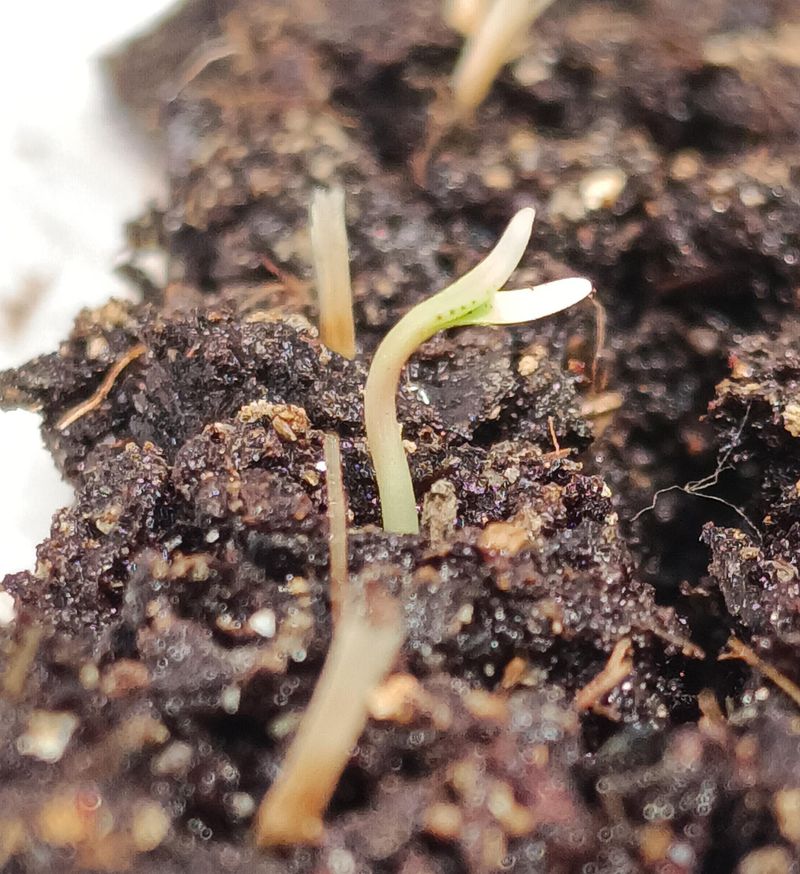
Nematodes might be tiny, but their impact is substantial. These beneficial microbes live in the soil, attacking root-feeding pests like grubs and beetles.
By introducing nematodes into your garden, you create an underground defense system. Simply apply them to moist soil and let them work their magic.
Their natural pest control ability reduces infestations without chemicals, promoting a healthier, more balanced garden ecosystem.
21. Horticultural Oils

Horticultural oils offer a chemical-free way to control pests by smothering them and their eggs. These oils form a protective layer, disrupting pest lifecycles.
Apply during dormant seasons or when pest activity is low to maximize effectiveness. This method is gentle on plants but ruthless on pests.
Regular treatment ensures that your garden remains free from infestations, without resorting to harsh chemicals.
22. Banana Peel Traps
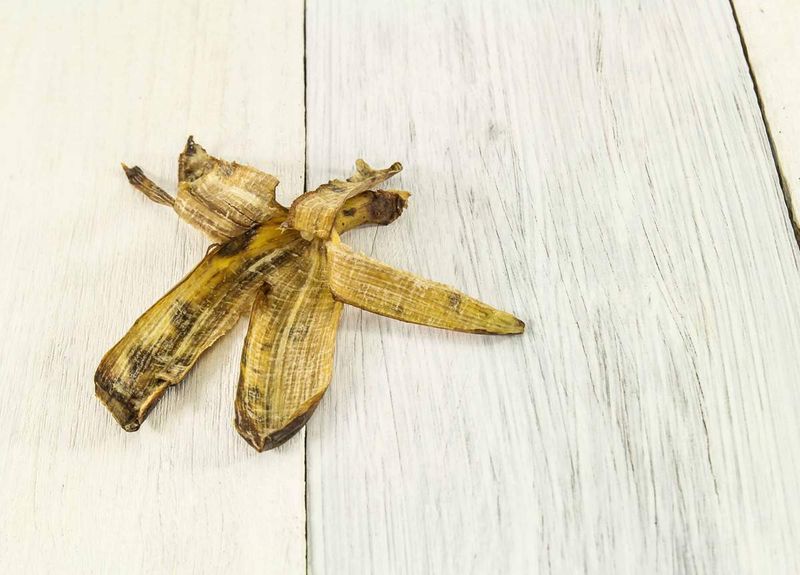
Who knew banana peels could be so useful? These peels attract fruit flies and aphids, providing an organic method to control these pests.
Bury or place them near problem areas to lure the pests away from your plants. This simple trick offers a budget-friendly solution to pest issues.
Monitor the peels regularly, replacing them as needed to maintain their effectiveness, helping your garden stay pest-free naturally.
23. Vinegar Spray for Ant Trails
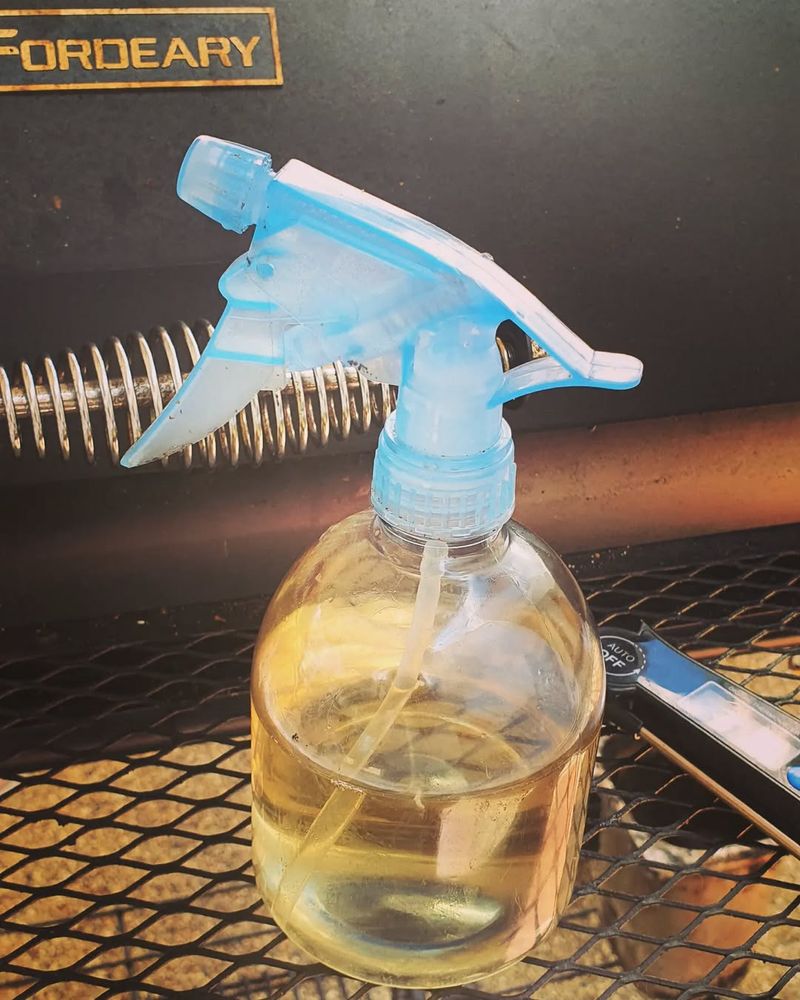
Vinegar’s sharp scent isn’t just for cooking; it’s also a powerful ant deterrent. By disrupting their scent trails, vinegar keeps ants from returning.
Simply spray a vinegar solution along ant paths and around entry points. It’s safe to use near plants, provided you avoid direct contact with foliage.
Regular application ensures ants find another place to invade, leaving your garden to thrive undisturbed by these persistent intruders.
24. Planting Resistant Varieties

Opt for pest-resistant plant varieties to naturally reduce infestations. These varieties possess natural defenses, making them less appealing to pests.
By choosing resistant plants, you enhance your garden’s resilience and reduce the need for interventions. This strategy allows for healthy growth with minimal effort on pest control.
Research and select varieties suited to your climate and soil conditions for the best results, ensuring a thriving, pest-free garden.
25. Keep the Garden Clean and Debris-Free
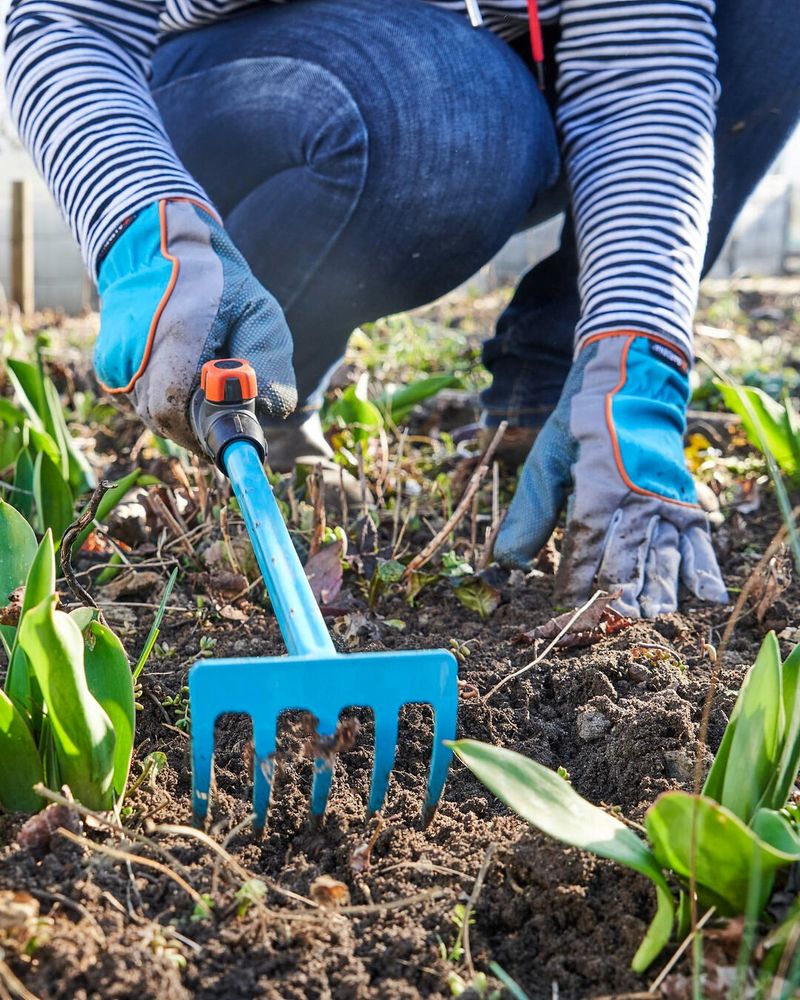
A clean garden is a healthy garden. By regularly removing plant debris and weeds, you eliminate potential pest breeding grounds.
This simple practice reduces pest populations while promoting air circulation and light penetration.
Make it a habit to tidy up your garden, especially during seasonal changes, to maintain its health and vibrancy, ensuring pests don’t have a place to settle.



